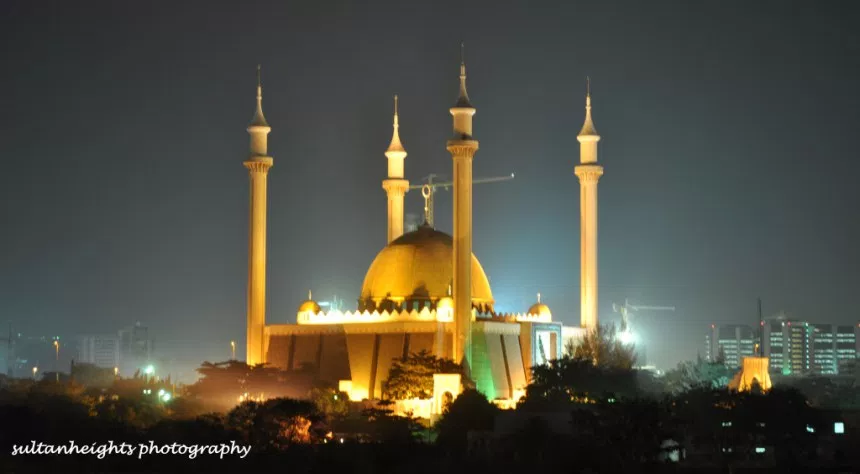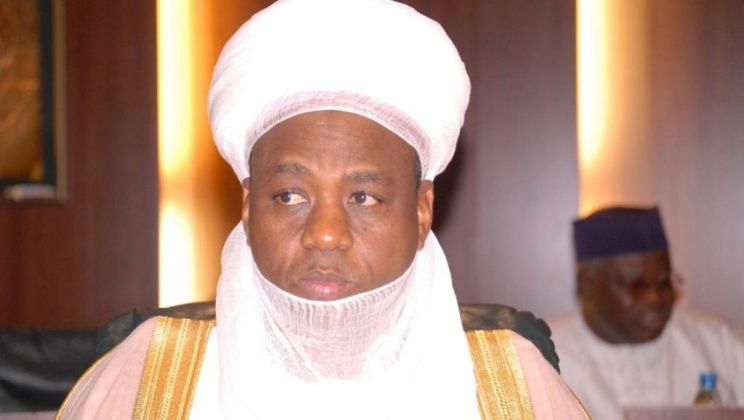In the name of Allah, the Most Merciful, the Grantor of Mercy
All praise is due to Allah, the Lord of the Worlds. Peace and blessing be upon whom Allah sent as a mercy to the Worlds, Muhammad, upon his Family, his Companions and his Brothers till the Day of Resurrection.
Dear brothers and sisters, in the Qur’an, the word Qunut refers to the obedience of Allah. In Islamic parlance, it refers to the Du’a that a person makes in Salah (prayer), particularly the Witr prayers or the obligatory prayers such as Salatul-Fajr, Zuhr, Asr, Maghrib and Isha, during the times of calamities. It is an act of devotion to Allah offered in a specific form and manner, when someone is in a dire state and is utterly broken and in need of Him Almighty.
Du’a (Supplication) is itself Ibadah (worship), as occurs in the Hadith of Nu’man Bin Bashir, he said:
“I heard the Prophet (Peace be upon him) say: ‘Du’a is Ibadah’, then he recited, “And your Lord says, “Call upon Me; I will respond to you.” Indeed, those who scorn My worship will enter Hell rendered contemptible.” [Collected by Al-Tirmidhi]
Among the Prophet’s habits were to perform Qunut during a Nazilah. Nazilah are catastrophes that befall large groups of people. These include calamities like war, plagues, and pandemics or crisis and insecurity that kill many people, including what we are currently witnessing in the form of the Boko Haram terrorists, armed bandits, kidnappers and coronavirus pandemic. This Nazilah (catastrophe) is affecting everyone, and is unprecedented in human history. It warrants that we turn back to Allah sincerely and to continuously seek His forgiveness and to renew our relationship with Him, the Most High. It also affirms the need to establish justice and to uphold the rights of the weak and vulnerable. It also means that we refrain at once from corrupting the earth through our sins. This calamity further merits that we correct our understanding and strengthen our belief in Allah by invoking Him alone and no other person or object, and to rely upon Him alone and defer matters to Him, for He is the King of kings. In His possession is everything in the heavens and earth. He controls the creation and they are all in His hold. He alone allows harm and help, elevates or debases whoever He wills. To Him belongs all grandeur in the heavens and earth, and He is the Most Powerful, All-Wise.
Respected servants of Allah! One of the things we can do during this Nazilah (catastrophe) is to revive the Sunnah of Qunut during the obligatory prayers, so that we invoke and pray to Allah while having the strength of faith in Him, and relying solely on Him, and seek intercession (Tawassul) through our good deeds so that He lifts this affliction and this insecurity, and heals people across the world. We seek refuge in His pleasure from His anger, and in His pardoning from His punishment, and that He makes this calamity an expiation for our sins, and a source of forgiveness, and a lesson for us to sort out our affairs.
Most of us has been tried and tested with the problems of insecurity, and everyone has been tested currently with the lockdown—which has meant that we are not permitted to go out—and has blocked us from going out to the Houses of Allah (the Mosques); so let us increase whatever is in our abilities from the acts of worship. One such act of worship is to revive the Sunnah of Qunut in our prayers, whether we happen to pray individually or in congregation in our homes. My advice is that one should strive to pray in congregation even if it is only two people, while adhering to the advice given by the health professionals regarding wearing face mask, social distancing etc.
Qunut is performed in the obligatory prayers while standing, after coming up from the final ruku’u and after saying, ‘rabbana lakal hamd.’ However, there is no issue if one were to do it before going into ruku’u in the last unit of prayer, since there is evidence in the Sunnah for both.
It is permissible to perform Qunut in all the obligatory prayers, and there is evidence for this in the Prophetic practice, but it is further stressed in Maghrib and Fajr prayers in particular, as found in the reports in the two Sahih collections (Bukhari and Muslim). Some scholars have said that you should only do Qunut in the loud prayers (Fajr, Maghrib and Isha), but the evidence appears to suggest that one can do it in all five prayers.
The Qunut Du’a is made loudly, and whoever is following should also say ‘amin’ loudly.
It is permissible to raise one’s hands during it, since the evidence from the sources inform us that that is permissible in Du’a in general.
As for the actual content of the Du’a, then this can be whatever Allah makes easy and wills for one to say. And Qunut can be made in any language, however a few things ought to be considered: To start by praising and glorifying Allah, Most High, as He is deserving. This can occur by mentioning Allah’s most beautiful names and attributes. Then to follow with seeking Allah’s forgiveness and to acknowledge one’s dire need for His Lord, the One Almighty.
To make Du’a that Allah lifts this calamity and affliction while having a true sense in one’s faith in predestination (Qadr), without despair nor denial, believing firmly that this is a plight that only Allah can remove.
To specify the particular Nazilah (i.e. insecurity and coronavirus) or at least mean and intend it in the Du’a one makes. One should not pray for any other need one may have. That can be done at other times in the day.
One should not make Du’a just for himself, but for everyone as this is affecting everyone. One should not make Du’a just for Muslims either, but for all of Allah’s creation.
To urge one’s Lord that He answers our prayers, and to have full conviction in one’s heart that Allah will answer.
To end his prayer with Salah upon the Prophet (Peace be upon him).
An example of one such Du’a is the following:
In the name of Allah, the Beneficent, the Merciful. All praise is due to Allah, Lord of the worlds. The compassionate, most merciful. Sovereign of the Day of Recompense. O Allah! We implore You for help and beg forgiveness of You and believe in You and rely on You and extol You and we are thankful to You and are grateful to You and we censure and forsake those who disobey You. O Allah! You alone do we worship and for You do we pray and prostrate and we resolve to please You and present ourselves for the service in Your cause and we hope for Your mercy and fear Your chastisement. O Allah! We have submitted ourselves to You, we have turned our faces towards You, committed our affairs to You, and we depend on You for protection, out of desire for You and out of fear of You. There is no refuge and no place of safety from You but with You. We believed in the Book You have revealed and in the Prophet that You sent.
O Allah! You encompass everything in Your knowledge and mercy, we ask You through every name of Yours—whether You have revealed this name in your revelation, or taught it to one of Your creation, or kept it concealed in Your knowledge of the unseen: that You forgive us and show mercy to us, and accept our repentance and pardon us. Our Lord, do not hold us accountable for what the foolish among us have done. Lord! Do not hold us to account for our wrongful deeds. We testify and acknowledge all the blessings you have bestowed upon us, and we confess to you all our sins, so forgive us for none forgives sins except You. O Allah, take us into Your care with those whom You have taken to Your care; Bless us in what You have given us; Protect us from the evil You have ordained. Surely You command and are not commanded, and none whom You have committed to Your care shall be humiliated and none whom You have taken as an enemy shall taste glory. You are Blessed, our Lord, and Exalted.
O Allah, through Your knowledge of the unseen and Your ability over the creation! O Allah, through Your will and power, and with Your light through which everything becomes resplendent: we have been afflicted with a calamity that You are well-aware of. O Allah remove the insecurity and the coronavirus afflictions from us, and cause them to be a source of expiation and martyrdom for anyone who has died from them, and for everyone who has been afflicted (with this insecurity and with this virus) to be a cause of their forgiveness and the acceptance of their repentance to You, and a useful lesson to return and show their penitence to You. O Allah have mercy upon the dead and cure the ill.
O Allah help and assist with Your strength and power those who are defending us against this insecurity and against this pandemic—the security agents, the specialists, doctors, nurses and whoever is working to uphold people’s safety and communal welfare. Shield them from the evils of this insecurity and this pandemic and allow for people to benefit from them, and protect them and their families, O Most Merciful One.
And Imams Ahmad, at-Tirmidhi, an-Nasa’i, Abu Dawud, Ibn Majah, and others record that al-Hasan Ibn Ali said:
“The Messenger of Allah taught me the [following] words to say in the witr prayer: ‘O Allah, guide me among those whom You have guided. Grant me safety among those whom You have granted safety. Take me into Your charge among those whom You have taken into Your charge. Bless me in what You have given me. Protect me from the evil that You have decreed, for You decree and nothing is decreed for You. And there is no humiliation for whom You take as a ward. Blessed and Exalted are You, our Lord.”
The Arabic text of this short Du’a of Qunut is as follows:
“الَّلهُمَّ اهْدِنِي فِيمَنْ هَدَيْتَ وَعَافِنِي فِيمَنْ عَافَيْتَ وَتَوَلَّنِي فِيمَنْ تَوَلَّيْتَ وَبَارِكْ لِي فِيمَا أعْطَيْتَ وَقِنِي شَرَّ مَا قَضَيْتَ فَإنَّكَ تَقْضِي وَلاَ يُقْضَى عَلَيْكَ وَإِنَّهُ لاَ يَذِلُّ مَنْ وَالَيْتَ تَبَارَكْتَ رَبَّنَا وَتَعَالَيْتَ.”
May Allah send His Salah and Salam upon our Prophet Muhammad (Peace be upon him).
All praise and thanks are due to Allah alone, Lord of the worlds. May the peace, blessings and salutations of Allah be upon our noble Messenger, Muhammad, and upon his family, his Companions and his true and sincere followers.
Murtadha Muhammad Gusau is the Chief Imam of Nagazi-Uvete Jumu’ah and the late Alhaji Abdur-Rahman Okene’s Mosques, Okene, Kogi State, Nigeria. He can be reached via: [email protected] or +2348038289761.
This Jumu’ah Khutbah (Friday sermon) was prepared for delivery today, Friday, Jumadal Ula 10, 1442 AH (December 25, 2020).




